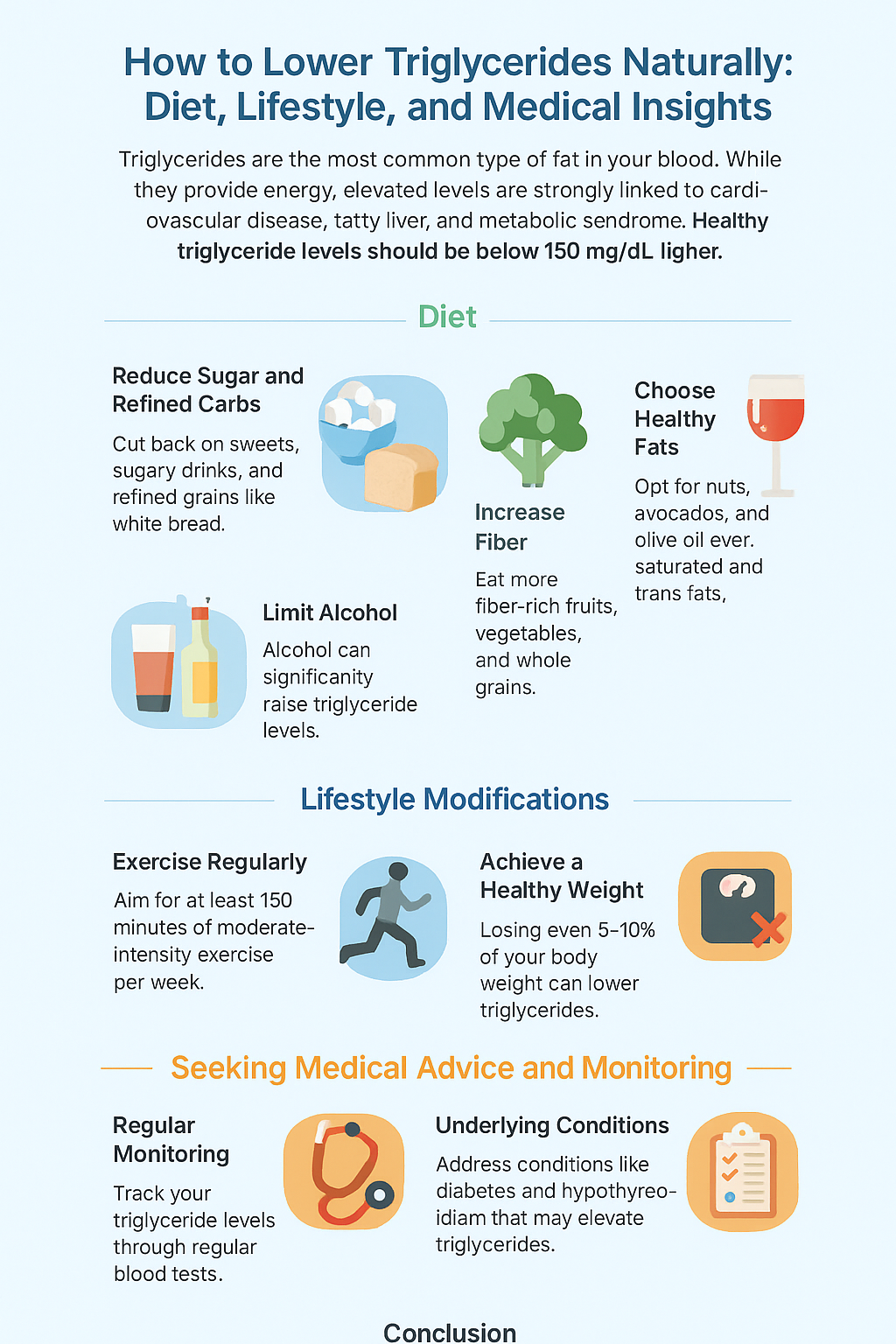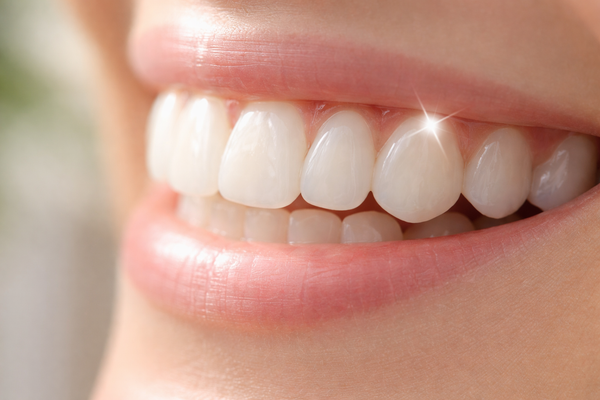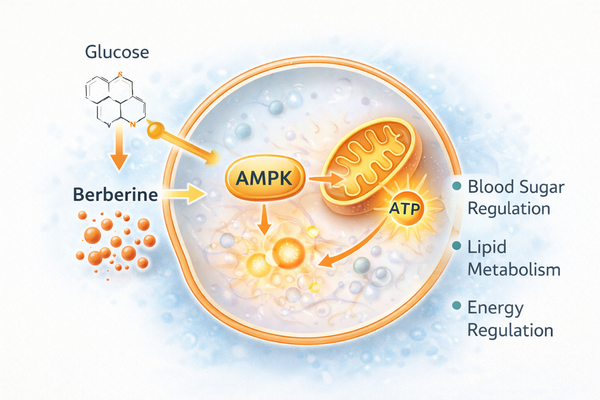How to Lower Triglycerides Naturally: Diet, Lifestyle, and Medical Insights

Maintaining healthy triglyceride levels is crucial for heart and metabolic health. Triglycerides are a type of fat found in the blood, and levels above 150 mg/dL are considered elevated. High triglycerides often occur with other conditions such as low HDL (“good” cholesterol), high LDL (“bad” cholesterol), insulin resistance, and excess weight—together raising the risk of cardiovascular disease and diabetes.
The good news: lifestyle and dietary changes can significantly improve triglyceride levels. Below is a comprehensive, research-based guide to lowering triglycerides naturally, with insights supported by organizations such as the American Heart Association (AHA) and Mayo Clinic.
Understanding Triglycerides and Health Risks
Triglycerides are stored in fat cells and released for energy between meals. While the body needs them in moderation, consistently high levels can:
- Harden arteries (atherosclerosis)
- Increase the risk of heart attack or stroke
- Contribute to fatty liver disease
- Worsen insulin resistance
Optimal ranges (mg/dL):
- Normal: < 150
- Borderline: 150–199
- High: 200–499
- Very high: ≥ 500
Dietary Strategies to Lower Triglycerides
1. Reduce Added Sugars and Refined Carbs
Excess sugar and refined carbohydrates (white bread, pastries, soda) spike blood sugar, which the body converts to triglycerides.
- Replace sugary drinks with water, sparkling water, or unsweetened tea.
- Choose whole grains (brown rice, quinoa, oats).
2. Limit Alcohol
Alcohol is calorie-dense and directly raises triglyceride production in the liver. Even moderate drinking can cause significant increases.
- If triglycerides are high, experts recommend limiting alcohol to occasional consumption or avoiding it altogether.
3. Choose Healthy Fats
Not all fats are equal.
- Favor unsaturated fats (olive oil, avocado, nuts).
- Eat omega-3 rich foods (salmon, sardines, chia seeds, flaxseeds). Research shows omega-3 fatty acids can lower triglycerides by up to 30%.
- Limit saturated fats (red meat, butter) and eliminate trans fats (processed snacks, margarine).
4. Eat More Fiber
Fiber slows sugar absorption and reduces triglyceride production.
- Sources: beans, lentils, vegetables, fruits with skin, whole grains.
5. Portion and Calorie Control
Excess calories, regardless of source, are stored as triglycerides.
- Focus on balanced meals, mindful eating, and avoiding late-night overeating.
Lifestyle Habits for Triglyceride Control
1. Regular Physical Activity
Exercise helps burn triglycerides for energy.
- Aim for 150 minutes of moderate activity per week (walking, cycling, swimming).
- Add resistance training (2–3 times weekly) to improve insulin sensitivity.
2. Achieve and Maintain a Healthy Weight
Even a 5–10% weight reduction can lower triglycerides significantly.
- Combine dietary changes with increased activity.
3. Improve Blood Sugar Management
High triglycerides and high blood sugar often coexist.
- Avoid constant snacking on high-carb foods.
- Consider time-restricted eating if advised by a healthcare professional.
4. Quit Smoking
Smoking worsens cardiovascular risk and reduces HDL cholesterol, making it harder to balance triglyceride levels.
Medical and Professional Guidance
For individuals with very high triglycerides (≥ 500 mg/dL), lifestyle changes alone may not be enough. In such cases, a doctor may recommend:
- Prescription omega-3 fatty acids
- Fibrates (gemfibrozil, fenofibrate)
- Niacin
- Statins (if cardiovascular risk is high)
Always consult a healthcare provider before starting supplements or medications.
Frequently Asked Questions (FAQ)
Q: Can omega-3 supplements replace fish?
A: Yes, but whole foods like salmon and sardines provide additional nutrients such as vitamin D and protein.
Q: How quickly can triglyceride levels improve?
A: With consistent dietary and lifestyle changes, improvements may be seen in 4–12 weeks.
Q: Are triglycerides only a concern for overweight people?
A: No. Genetics, diabetes, and excessive alcohol can elevate triglycerides even in people with normal body weight.
Conclusion
Lowering triglycerides naturally requires a combination of dietary improvements, regular activity, weight management, and limiting alcohol and added sugars. For many, these steps not only reduce triglyceride levels but also enhance overall heart and metabolic health. For individuals with very high levels, professional guidance and medical treatment may be necessary.
By consistently making these changes, you can move toward optimal triglyceride control and long-term cardiovascular wellness.



